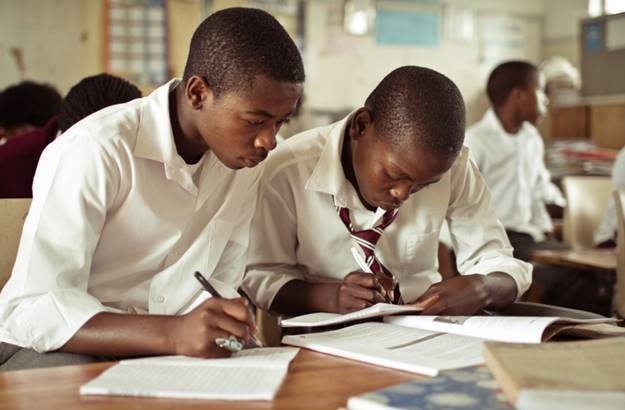South Africans are fuming over a leaked version of the new 2020 life orientation curriculum.
The curriculum is an updated sex education content expected to cover lessons on private parts, masturbation and explicit direction on using female condoms.
Students from Grade 4 and up are said to be targeted in this leaked curriculum.
Teachers have served notice of possibly boycotting the new school curriculum.
They are unhappy with content of the curriculum that requires them to teach pupils in Grade 7 about masturbation and to describe to Grade 8 pupils what happens “during vaginal, oral and anal sex”.
The document was leaked to the media last month following concerns over the curriculum to be rolled out from next year.
SA Teacher Union (SAOU) president Chris Klopper had told local media City Press that his outfit will instruct teachers to boycott the “grossly insensitive” material regardless of disciplinary action.
“[If] disciplinary action is taken by the department of education, SAOU will not hesitate in assisting its members with legal assistance and protection.”
Aspects of the lesson content
- Pupils in Grade 4 learning what “private parts” are and the biological names for them. One of the activities involves 10-year-olds being split into groups and pointing out one another’s “private parts” and explaining why they think its private
- Pupils in Grade 6 learning about the dangers of sexual content on social media. In one scenario a girl considers sending a topless photo of herself to boys on a WhatsApp group and the class is required to discuss whether it’s a good idea;
- In Grade 7 pupils will learn about boys and girls who masturbate. “This is normal and will not hurt you,” the study guide says.
- Pupils in Grade 8 will begin to distinguish between biological and gender identity and how it differs. They will learn about unsafe abortions. In the guide for the lesson, an hour is prescribed for descriptions of vaginal, oral and anal sex, fertilisation, the biology of pregnancy and the chances of getting it pregnant;
- The grade 9 book has a seven-step, illustrated depiction of how a female condom should be correctly placed in position inside the vagina. There is also a compulsory group activity in which pupils learn to say “no” through role play. One character tries to convince the other to have sex, while the other is meant to turn it down while still “maintaining a positive relationship”; and
- In grade 10 and 11 pupils will learn about the various sexual orientations; that it’s not a choice; and how to be accepting towards a transgender woman, for example, who now identifies as male.
Government’s position on document
South Africa’s minister of basic education, Angie Motshekga wrote in a preface guideline that government had begun to revise the curriculum as early as 2011.
The minister said the previous focus on HIV and pregnancy did not have the desired outcome.
Although the education ministry strongly promotes abstinence from sex until a suitable age the minister wrote that pupils will still be encouraged to put off having sex.
The curriculum had to be aligned with international standard guidelines drawn up by the UN’s education body, Unesco, in cooperation with leading experts in the field, the government said.
Many South Africans have voiced out strong opinions on the supposed sex lessons although there are some who still consider it okay.
Paul Colditz, chief executive of the Federation for School Governing Bodies, was shocked by details of the document.
“What we see now was not shared with us so we could obtain insights from parents and does not appear to be age-appropriate, sensitive or value-driven.”
Recently citizens and groups in Ghana also reacted strongly to similar changes to education curriculum for students.
The country’s education ministry reacted saying the said comprehensive sex education curriculum was yet to be approved.
Source: Africafeeds.com


